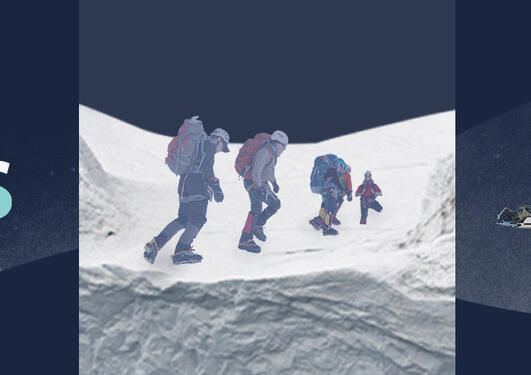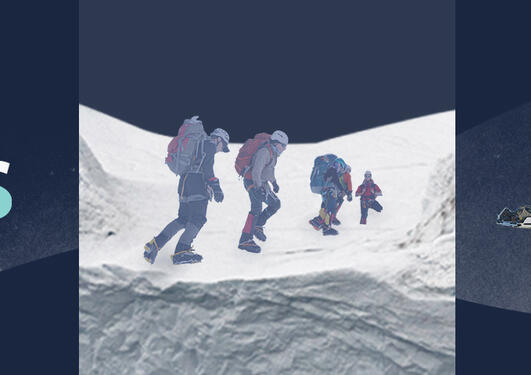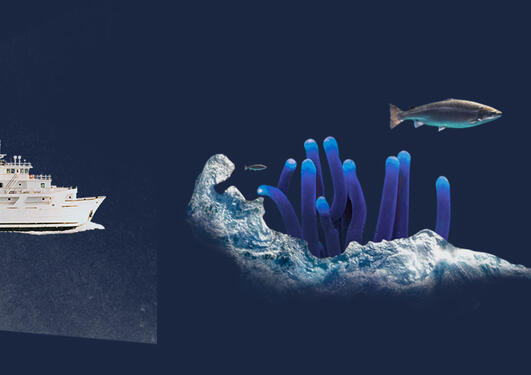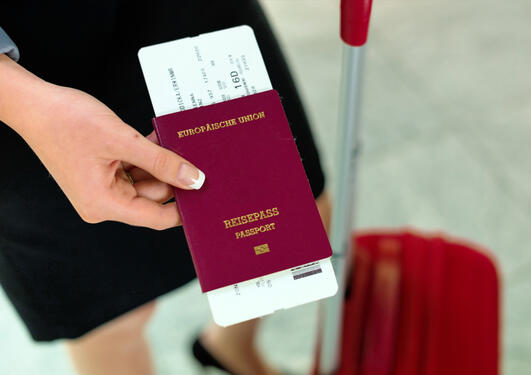Research possibilities for the MSCA SEAS postdoctoral research fellow in safety and working conditions for maritime workers
The information on this page is a supplement to the complete advertisement of the position in the recruitment-portal Jobbnorge. The full advertisement of this position in Jobbnorge will be available from April 1, and linked from this web page. Call deadline is June 12, 2023.
Main content
Key information
| One position | MSCA SEAS postdoctoral research fellow at the Department of Psychosocial Science |
| Jobbnorge title | MSCA SEAS postdoctoral research fellow in safety and working conditions for maritime workers |
| Topical frame | Non-standard working hours |
| Available supervisor | Professor Ståle Pallesen |
| Mobility | For an incoming or outgoing candidate |
| Unit of employment | Department of Psychosocial Science at University of Bergen |
| Group affiliation(s) | Bergen Sleep and Chronobiology Network |
Thematic area and contact
The successful candidate will be employed at the Department of Psychosocial Science, at the Faculty of Psychology.
The position is open for research on working conditions for maritime workers, dedicated to ‘non-standard work schedules’, and will be associated with the Bergen Sleep and Chronobiology Network.
The position is open to either an incoming or outgoing candidate, see mobility rules.
More information about the supervisor and research possibilities can be found below. For further details about the research possibilities please contact supervisor Professor Ståle Pallesen.
Research possibilities and resources
Working conditions for maritime workers - Non-standard work schedules (supervisor Ståle Pallesen)
Supervisors for the projects related to non-standard work schedules are Professor Ståle Pallesen, Professor Anette Harris and Professor Olav Kjellevold Olsen. Pallesen and Harris are both affiliated with the Bergen Sleep and Chronobiology Network (BeSCN), thus that group will be emphasized in the current description.
Non-standard work schedules and long shifts are highly prevalent in the maritime sector, both within the civilian (including oil installations in the North Sea) and military entities. Hence, safety challenges related to shift and night work and sleep deprivation are immanent in the maritime sectors.
The three supervisors are highly familiar with research on sleep, non-standard work schedules and sleep deprivation. In terms of specific research interests, we can mention effects of non-pharmacological interventions to improve functioning and adaptation to non-standard work schedules and effects of sleep deprivation on social interaction, moral judgement, social cognition and team functioning. Another potential topic encompasses personality and genetic factors contributing to shift work tolerance.
The supervisors have extensive collaboration with researchers internationally, both related to basic and applied research. Hence, the opportunity for research stays abroad (both short- and long term) for incoming post doctors would be great.
We have active and current collaboration with the Royal Norwegian Navy and with civil shipping companies. In addition, we have several contacts within the Norwegian oil industry. In terms of innovation, we have established collaboration with Norwegian companies such as VitalThings that among other produces contactless sensors (e.g., for remote sleep registration) and Glamox who produces lights (e.g., human centric lighting).
In terms of relevant and available infrastructure we have access to a light lab, a naval simulator, and we are also in the process of establish a driving simulator lab. We have also access to sleep assessment devices (polysomnography, actigraphy and sleep radars).
The BeSCN is a cross-disciplinary and cross-facultary research group with strong connections to the Faculty of Medicine (prof Bjørn Bjorvatn and postdoc Siri Waage) and also to the Norwegian Competence Center for Sleep Disorders, situated at the Haukeland University Hospital, Bergen (see www.BeSCN.no). Hence, the plan is to recruit co-supervisors from these research environments.
See the full advertisement in Jobbnorge
The full advertisement in Jobbnorge will be available from April 1, 2023, until call deadline June 12.
Important general information
Please be aware
- That until April 1st 2023 (official call opening) there might be minor adjustments in the Guide for applicants and the templates needed for applying.
- That the application process is time-demanding and requires a close dialogue with name-given available faculty supervisor or contact who, close to the deadline, must sign a supervisor match declaration if an application is to be eligible.
- That some fields of research, especially within sensitive technology areas, might be enforced by Norwegian and international regulations regarding Control of the Export of Strategic Goods, Services and Technology. Candidates who by assessment of the application and attachment are seen to conflict with the criteria in these regulations might be prohibited from recruitment to UiB.



